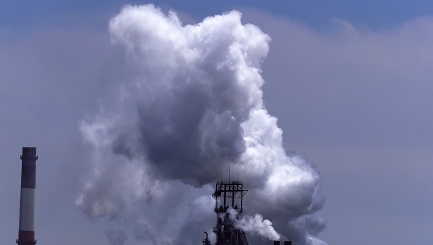Is Climate Change To Blame For Your Asthma Symptoms?
 If ragweed pollen allergy or asthma affects your wellbeing, your symptoms may have seemed to last longer over the last several years. According to US researchers, it’s not in your head, but actually climate change and global warming has led to ragweed pollen season lasting longer today than it did just 16 years ago, and it’s taking its toll on your wellness.
If ragweed pollen allergy or asthma affects your wellbeing, your symptoms may have seemed to last longer over the last several years. According to US researchers, it’s not in your head, but actually climate change and global warming has led to ragweed pollen season lasting longer today than it did just 16 years ago, and it’s taking its toll on your wellness.
The team, led by plant physiologist with the US Department of Agriculture Lewis Ziska, compared 16 years’ worth of pollen data, the number of frost-free days, and the delays in the onset of the first fall frost, across 10 locations. They discovered that, compared to 1995, the ragweed pollen season lasted as much as 27 days longer in 2009 and the length of the season becomes more dramatic the further north you are in the Western Hemisphere.
You tend to find ragweed in the warmer regions of the Northern Hemisphere and in South America, when the days begin getting shorter and warmer and until first frost. However, the amount of time the pollen is in the air has increased because the global average temperatures have warmed, meaning that, especially at higher altitudes, the first frost is delayed. More intense asthma symptoms have also been caused by higher carbon dioxide levels associated with global warming, as Ziska estimates that this has caused pollen production to rise by over 400% in the past four or five decades.
According to study co-author Dr. Jay Portnoy, though ragweed pollen has been proven to cause asthma flare-ups and hay fever, it’s probably not the only pollen to have a longer season. He explained, ‘We used ragweed as a marker,’ but it’s probably true for other pollens too, such as tree pollen, which is another type of allergen that causes spring allergy symptoms.
Dr Portnoy said that the results of this study, which was published in the Proceedings of the National Academy of Sciences, could significantly impact on the way ragweed-triggered allergies are diagnosed and treated, as ‘things that used to be a fairly minor disease are now going to be a much more significant problem.’ Patrick Kinney of Columbia University, added that pollen exacerbates disease and can cause sensitisation in people that aren’t yet allergic.


Comments are closed.